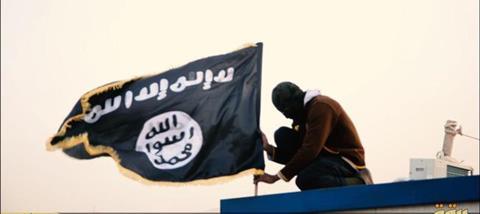
The British public must face the sobering fact that nearly everyone who died in Friday’s Tunisian massacre was a citizen of the United Kingdom, and they were targeted precisely because they were from the West.
As Prime Minister David Cameron reminded us yesterday, the Islamic States does indeed represent an 'existential threat' which is 'the struggle of our generation.'
The world must also awaken to the fact that Friday’s series of coordinated attacks in Kuwait, France, and Tunisia also represent a wake up call for all of those in the West who have discounted the ability of ISIS to escalate their war outside of the borders of Iraq and Syria.
Remarkably, all of this was happening on Friday even as ISIS was engaged in significant attacks on the Syrian cities of Kobane and Hassakah. Kobane was 'liberated' earlier this year after months of Western airstrikes, and Hassakah was a city secure enough two months ago to provide safe haven for thousands of displaced Christians.
On Friday, 147 people were massacred in Kobane, and nearly 4000 Christian families were forced to flee Hassakah as ISIS continues to expand. They now occupy one piece of land larger than the UK in Iraq and Syria.
ISIS has innovated terrorism more quickly than most governments have been able to adapt. The fight for security no longer begins in the mountains of Afghanistan or the deserts of Syria. It now begins in a digital world where terrorist training has been outsourced to computer screens and cell phones, and where potential terrorists are connected with one another more easily and prodded on through social networks.
One year ago, Abu Bakr al-Baghdadi, the Caliph of the Islamic State, called upon jihadists everywhere to travel to the caliphate to join the fight, but all of those who couldn’t do so were compelled to 'fight in his land wherever that may be.'
ISIS has innovated terrorism more quickly than most governments have been able to adapt.
Abu Mohamed al-Adnani, the spokesman for the Islamic State, last September, issued a similar statement calling on ISIS sympathizers in every country to take every opportunity to 'kill a disbelieving … European – especially the spiteful and filthy French …smash his head with a rock, or slaughter him with a knife, or run him over with your car, or throw him down from a high place, or choke him or poison him.'
Churches, community centers, and resorts are all 'soft targets' where terrorists can cause the most harm as easily as possible. Earlier this year, an ISIS sympathizer in France was arrested en route to attack a church.
When The Barnabas Fund convened a closed-door session with 50 Christian leaders last week, to address the issue of security for churches, some criticized them for fueling paranoia. Yet, just a few a few days later we were all reminded of how dangerous a world we’re living in.
Of course, ISIS does all of this to inflict 'terror' and 'paranoia' upon us.
They simply want us to be afraid, and there are those that would argue that we play into their hands when we speak about what they have done and aim to do.
But, the fact is that our government has generally done too little too late until now, and as long as the government continues to underestimate the threat of global terrorism, churches may be forced to be more and more security conscious.
Our governments must do better at terrifying the terrorists with their resolve and our churches must cripple the power of terrorism by remembering and living the words written by Apostle Paul during another persecuted time, 'For God has not given us a spirit of fear, but of power and of love and of a sound mind.' (2 Tim 1:7 NKJV)
Johnnie Moore has also written a full length feature for the forthcoming August edition of Premier Christianity magazine. Click here to request your free copy of Premier Christianity.





























